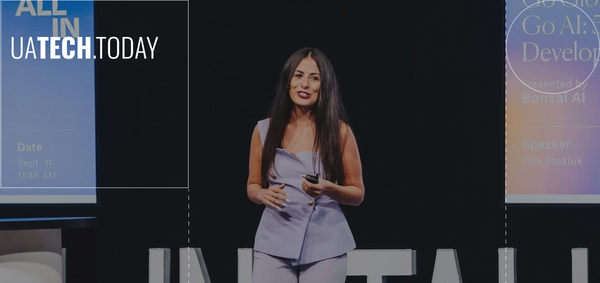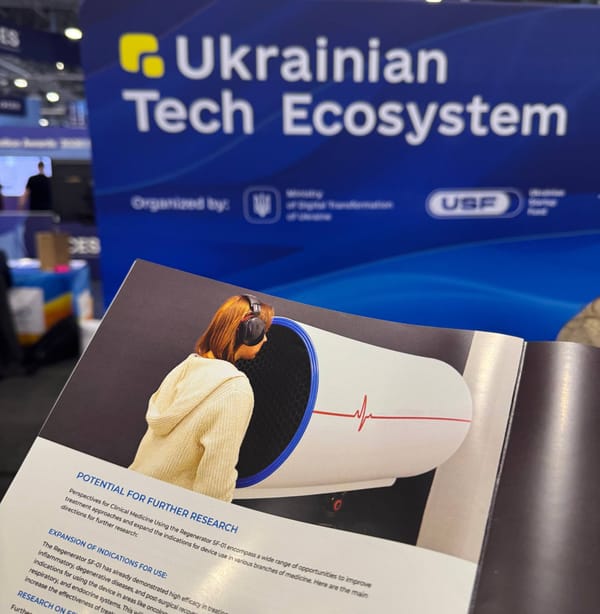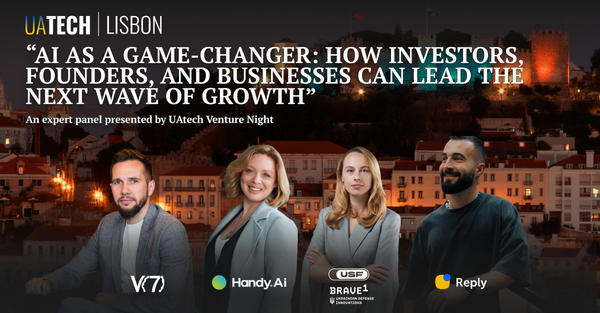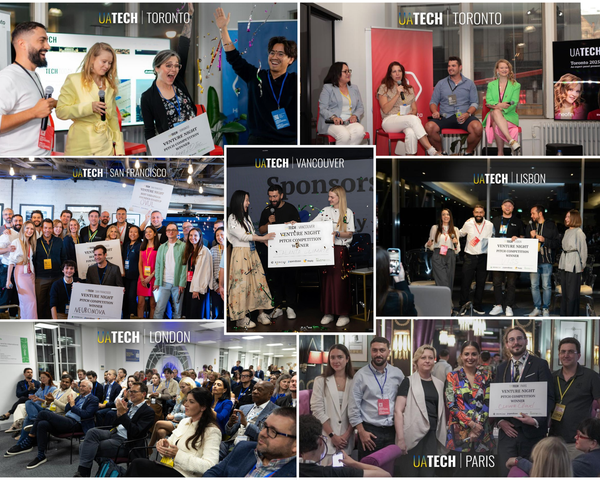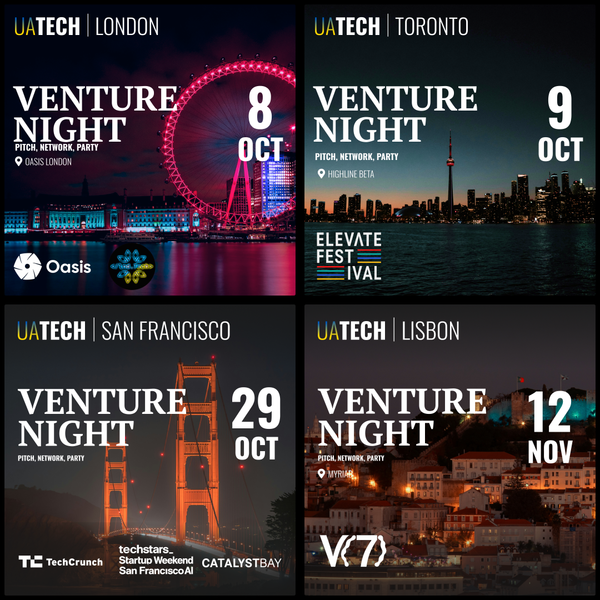Olia Stasiuk is a Bestselling Author and a Certified Global Professional in Human Resources, with deep expertise in HR strategy, people development, and Diversity and Inclusion. She’s a Harvard Business School alumna, a 15-time half-marathoner, and the author of the book 66 Days Success Formula.

Olia is also the CEO of Bonzai AI, offering three cutting-edge AI-powered products—Bonzai Video, Bonzai Course Creator, and Bonzai Learning Management System. These solutions reduce operational costs and time around employee learning by 99%, provide instant translations in over 29 languages, and use professional digital trainer twins that enable global scaling 50x faster than traditional methods. Combining innovation with practical AI applications, Olia empowers businesses of all sizes to leverage technology for enhanced efficiency, scalability, and success across industries.
Why You Need a Dream Team
Are you a new, aspiring, or repeat entrepreneur? Do you have a lightbulb idea that you’re convinced could change lives—or even the world? Amazing! I’m with you.
While every idea is different, all entrepreneurs eventually face the same critical question: “Who will I build this with?” Decisions about your team—business partners, advisors, and investors—are some of the most crucial you’ll make.
Why? Because every successful entrepreneur knows a simple truth: you can’t do it all alone.
Simple? Yes.
Easy? Not quite.
As a serial entrepreneur, I’ve learned this firsthand through experiences ranging from launching a side hustle with my ex-husband to scaling a full-time tech venture. I’ve made mistakes, gained insights, and found strategies that work. Now, I’m here to share those with you.
Why You Shouldn’t Do It All Yourself
- Time is your most valuable asset. Even if you can learn how to do everything—social media design, financial projections, basic coding—it’s not the best use of your time. Every minute spent learning these skills delays your ability to scale and compete effectively.
- Burnout isn’t a badge of honor. Overworking yourself might yield short-term wins, but it’s not sustainable. Your business needs you at your best, every day.
- No one will do it exactly like you, and that’s okay. Dan Martell puts it perfectly in his book Buy Back Your Time: “If anyone delivers 80% of what you would, they’re a gem.” Trust your team. Give them the space to surprise you—you might just experience some “wow” moments.
Launching Bonzai AI: A Fresh Approach
Who You Need in Your Co-Founding Team
When I founded Bonzai AI—a software that allows users to create video-driven courses in just 15 minutes—I knew I needed to do things differently.
I also needed a technical co-founder, as I didn’t have that skill set. To find the right people, I attended the Collision Conference in Toronto, where I listened to investors discuss their criteria for successful teams.
How to Search and Select the Right Co-Founders
Here’s what stood out:
- Family isn’t ideal. Difficult conversations become harder, and successful outcomes are rare.
- Long-term relationships matter. People who’ve proven themselves over the years are your best bet.
- Don’t rush into partnerships. Even if they seem passionate, starting a business with someone you just met at the conference rarely works. Excitement fades, but habits and qualities remain.
- Leverage your network. Post on LinkedIn, message individuals, and let others know what you’re looking for. Networking isn’t just about finding the right people—it also attracts investors and clients who notice your initiative.
I knew I needed three co-founders to create a balanced voting structure and take the company off the ground:
- CEO (Investor Relations, Face of the Company, Strategy, Product Owner, HR, Finance & Person who struggled with the problem the company is aiming to fix. Bridge between CTO and CRO);
- CRO (Chief Revenue Officer - Sales and Marketing, at the later stages Partnerships, Customer Support and Success);
- CTO (Back of the House: Architecture, DevOps, UI/UX, Front & Back-End, partial Product Owner)
Note: these might vary slightly based on the skill sets you have but you need to remember that Sales, Fundraising, and Development are full-time jobs, dedicating part-time hours to it will set you to fail. Also, the stage of the startup really dictates when to hire new roles like HR, CFO, and others full-time. Don’t run into those before you are generating revenue.
Remember: Revenue First. You will solve all other problems as you go.
That’s why I knew the skills I was looking for and quickly identified two co-founders: one from my university years and another through network recommendations.
Before committing, I gave each person a test project tailored to their role. This confirmed they could deliver on their promises and align with the company’s vision.
One thing that I didn’t do well was a background check and it backfired on me, after I met over a dozen of founders in a very short period of time who regretted the same mistake. Absolutely take time to do all the references and background check and ideally through other people in your network who might be connected with your potential co-founders journeys. NEVER agree to co-found a company with someone because they seem OK and you have no better options.
Trust the universe for the right people to show up as you continue searching.
Investors: What They Love and What Scares Them
Tech ventures have unique rules, especially if you plan to raise funds. Investors evaluate startups based on:
- Founder-market fit (a single founder is often seen as risky).
- Product-market fit.
- Go-to-market strategy.
- Market saturation and timing.
Investors want confidence that your founding team can execute the vision. They also pay attention to how you handle challenges, communicate, and adapt. Red flags often include lack of transparency, unrealistic projections, and an unbalanced team with critical skill gaps.

When you find the right investor, you gain more than funding—you gain a partner who can offer mentorship, industry connections, and invaluable insights.
Looking Ahead: Building Your Core Team
Once you’ve aligned with co-founders and secured investors, the next step is hiring a core team that complements your vision rather than duplicating existing skills. That’s where the real magic happens—when each team member brings something unique to the table.
In the next article, we’ll dive deeper into how to hire and manage your wider team, ensuring everyone is moving in the same direction and working toward a shared vision.
by Olia Stasiuk – People Development Editor
Olia is a Bestselling Author and a Certified Global Professional in Human Resources, with deep expertise in HR strategy, people development, and Diversity and Inclusion. She’s a Harvard Business School alumna, a 15-time half-marathoner, and the author of the book 66 Days Success Formula.
Olia is also the CEO of Bonzai AI, offering three cutting-edge AI-powered products—Bonzai Video, Bonzai Course Creator, and Bonzai Learning Management System. These solutions reduce operational costs and time around employee learning by 99%, provide instant translations in over 29 languages, and use professional digital trainer twins that enable global scaling 50x faster than traditional methods. Combining innovation with practical AI applications, Olia empowers businesses of all sizes to leverage technology for enhanced efficiency, scalability, and success across industries.


